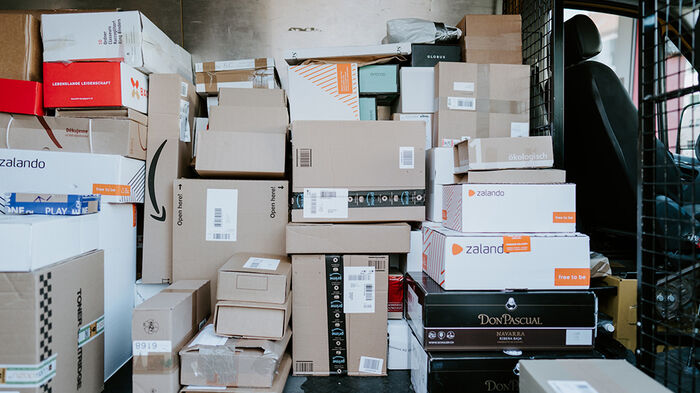In his new book The Political Economy of Low Carbon Transformation: Breaking the habits of capitalism Professor Harold L. Wilhite at the Center for Development and the Environment at the University of Oslo explores a concept that is largely being ignored in the discourse surrounding sustainability, but one that he thinks is key to turning things around. That concept is habit. He argues for the importance of recognizing that the everyday behaviours that lie at the core of many of our global environmental issues are, in fact, mostly routine actions – habits – that stubbornly persist despite our best intentions to take these issues seriously.
The habits that fuel the patterns of excessive consumption, however, are not coincidental. Rather, they are deeply rooted in capitalism, and in the structures capitalist ideals have fostered. What is it then about capitalism that is hindering our efforts towards sustainability? Prof. Wilhite explains:
‘Capitalism takes on many different forms, but at its heart is the need for economic growth […] the idea of individualist consumption […] and the fact that the system of profitability is based on rotating commodities through the system, what we call turnover. All three of those things are antithetical to reducing carbon emissions.’
Policies that aim to limit energy consumption and cut carbon, he says, are going to have a hard time in succeeding as long as they are trying to work within that framework. The capitalist system has a built-in need for energy and carbon – it is a logic that has transformed how we live our lives:
‘….it has manifested itself in the practices in everyday life. It’s a kind of logic that we have come to accept. That we as a society, that we as a household, need to have growth of material consumption if we are to have a good life.’
According to Wilhite, implementing regulations on industries and promising green jobs is not going to be enough to tackle climate change. It is going to take changing those everyday practices. This point has not entirely gone unnoticed by policymakers. Indeed, governments are continually urging citizens to cut waste and take public transport. And although some instances of progress may be gleaned here and there, the fact remains that in the grand scheme of things, most of us do more or less as we always have done.
The reason why our everyday practices persist has to do with the nature of habitual behaviour. Wilhite explains that behavioural patterns such as these are based to a large extent on our past experiences. With the risk of oversimplifying, this is to say we do what has worked before. This saves us from questioning our actions over and over – with the risk of not getting anything done. Those patterns, however, are a kind of implicit knowledge that we never really think over. A key word to understanding how those patterns are forged is ‘systems’. It is the systems around us that lay the ground rules for what works and makes sense and what does not. The social norms and relationships that tie us to certain behaviours is one type of system. It takes a lot of willpower to confront norms and risk judgement by your peers. But a central theme in The Political Economy of Low Carbon Transformation is that our habits are grounded, too, in that which is much more concrete:
‘[Our behaviour is] also affected by the materialities that have been deposited in the past… The way an urban city has been designed for automobility for example. It is very hard to go at cross purposes with that. So we get into patterns that are consistent with the materialities that are there, and that makes it very difficult to break [out of those patterns].’
Wilhite offers a powerful lesson on how the phenomenon of the air-conditioned house emerged out of the concerted efforts of banks and corporations with the aid of government policy to create a particular notion of ‘comfort’ that depended on a sealed off and constant indoor climate. Air-conditioned ‘comfort’ replaced a more natural and environmentally-attuned sense of comfort, essentially creating a need that wasn’t really there.
‘It is the capitalist story’, he says, ‘That was capitalism… And once you’re into that [‘the comfort bubble’], back to habits, how are you going to break out of it?’
And so in Harold Wilhite’s view, changing our habits is going to involve not only questioning the implicit knowledge that drives our behaviour. One will also have to disrupt the systems – some of which are upheld by state and corporate actors – that perpetuate them:
‘We need to create spaces for experimentation. Because a habit theory leads to the idea that if we are going to change the way we have done things over generations and throughout our lifetimes… it’s not enough just to give us information that provide visions about what we can do, we need to provide opportunities for experimenting with new solutions.’
But is there any such experimenting going on? Not as much we need, surely, but the book directs our attention to a variety of grassroots community initiatives that appear to be doing something interesting. What it refers to is movements such as the ecovillage- and transition town networks, local communities that base their institutions and way of life on self-sufficiency and sustainability, both with strong elements of community orientation and sharing practices.
‘When I started 30 years ago I thought they were irrelevant, these local movements. I didn’t think they were relevant to the general middle class or large urban areas. But I’ve changed my mind over the years. Number one, because that’s the only space where we are seeing experimentation take place… with local political economies, ecovillages and transition networks, they’re different but they have similar reversals of priorities between consumption, and the good life and the environment…They are providing examples for us.’
And, as he points out, these movements, although relatively small at the present, are ‘increasing at extremely rapid rates’.
‘[They] may be developing a sort of critical mass that could influence how we think about policies at the national level… They do provide hope, in an otherwise very pessimistic terrain.’
Prompted on the current global political situation and if he thinks there is indeed reason to be hopeful, that there is reason to think we might be moving towards a better future or not, Wilhite leaves us with a qualified ‘maybe’:
‘People are hungry for new ideas…If you look at the Brexit, if you look at the political action in the United States right now, you see that there are a lot of people out there that are dissatisfied with the system. I think for the first time in four or five decades we have a massive interest in systemic questions…And hopefully within that systemic questioning will be questioning about environmental impacts.
New book

Harold Wilhite: The Political Economy of Low Carbon Transformation. Breaking the habits of capitalism. Routledge, 2016.
Research Groups
Download as PDF : Will the Paris agreement save the world? An analysis and critique of the governance roadmap set
This article was first published on the cCHANGE blog






